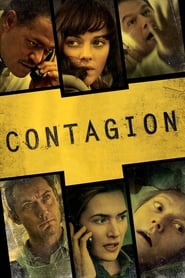A number of people kept returning to this film again and again during the pandemic, and it has been suggested that this is due to its pornography of competence. Yet I suspect there were three other reasons acting in concert with this. Firstly, the home viewing experience is one almost defined by control, and simply the ability to put this film on (and stop, pause it, etc.) likely restored some sort of autonomy missing from their everyday experience, even if (or precisely because) it was a something of a painful watch. Second, the cold affect of Soderbergh's film likely had a numbing effect on the viewer as well, which could act as a palliative to any swirling emotions inside them, or, alternatively, it could be one of the few pieces of media (outside of slow art cinema) that reflected the benumbed mental state of the locked-down viewer; something that watching old TV episodes could never achieve. Lastly, I suspect that multiple repeat screenings of this film were driven by the film lacking a 'solution'. No matter how many times they watch it, viewers could never chart the world's way out of its situation, leaving the viewer wanting more. What did I miss? Indeed, this effect is exaggerated by the very way the third act of the film loses its energy, circling out centrifugally rather than bringing the narrative threads together. Whilst this may be true-to-life, the lack of a satisfying narrative closure leads to a sense of 'lack', broadly analogous to that seen in addiction cycles.
A very early sequence, in which a daisy chain of coughing and shivering across continents establishes one of several persons as MEV-1’s patient zero, more or less sets the tone for what is essentially a feature-length montage sequence, a Purell advertisement short on human interest and long on explanations of a pandemic through analogies and generalities. Matt Damon, as Beth’s MEV-1-immune hubby Mitch, subtly defies Contagion’s simplification of the politics of guilt, resistance, and helplessness. That Beth is an adulteress, and her son a product of a previous relationship, is at least one symptom of the film’s callous aversion to creating scenarios in which characters might be required to seriously grieve for their dead. Soderbergh has no time for that sort of drama[.]
— Ed Gonzalez (Slant Magazine)
Warner has never hammered me on [this] shit, but the one thing that came up was, “People don’t know how to feel about Jude.” And I said, “Yeah, I know.” There’s a difference between ambiguity and confusion. I said, “He’s an ambiguous character. He’s a polarizing character.” These are movies, not cereal.
— Interview: Steven Soderbergh (Director)
Stars with SARS.
— Peter Debruge (Variety)

